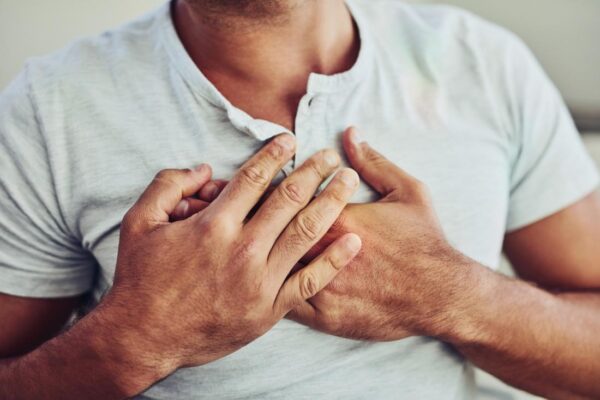Heart diseases can be described as a range of specific conditions that could affect your heart health. Heart diseases include various blood vessel diseases like coronary artery disease, arrhythmias or heart rhythm problems, and any heart defects you might be born with. The heart defects that accompany people right from birth are known as congenital heart defects. There are several heart problem symptoms that you must be aware of to avoid them from growing into bigger problems in the future.
Another term that is used to describe “heart disease” is “cardiovascular disease.” Cardiovascular disease refers to the conditions involving a narrowed or blocked a blood vessel, which leads to chest pain, heart attack, and even a stroke. There are other forms of heart disease that affect the heart’s valves, muscle, or rhythm.
In most scenarios, unhealthy lifestyle choices lead to abnormal heart health. Once a person adopts a disciplined lifestyle and maintains the utmost care, he or she may avoid the chances of any heart diseases.
Types of heart problems
As mentioned earlier, there are many kinds of heart problems. Here, we are listing the most common ones that you must stay aware of:
- Septal defects: In these cases, a hole persists between the heart’s two chambers.
- Obstruction defects: Such defects lead to the partial or total blockage of blood flow through the heart chambers.
- Cyanotic heart disease: Such a heart defect leads to a shortage of oxygen supply around the body.
- Arrhythmia: It is the case of an irregular heartbeat. It may be the case of relatively slower or faster heartbeats that usually occur when the heart’s electrical impulses don’t work properly. Under certain conditions, its effects can be felt which may not warrant a visit to the doctor. However, you must not delay consulting your doctor at the earliest if the symptoms are severe. It might prove fatal if it’s left untreated.
- Coronary artery disease: Coronary arteries are responsible for supplying nutrients and oxygen to the heart muscle through blood circulation. These arteries often get damaged, which mostly occurs when a significant amount of plaque deposits contain cholesterol. Such a plaque buildup eventually narrows the arteries, which restricts the amounts of oxygen and nutrients reaching the heart.
- Dilated cardiomyopathy: Your heart chambers may become dilated because of the weakness of the heart muscles. As a result, the heart might not be able to pump blood appropriately. This condition generally affects the heart’s left ventricle.
- Myocardial infarction: We call this condition by many names, including heart attack, coronary thrombosis, and cardiac infarction. The interrupted flow of blood can destroy certain parts of the heart muscle. This mainly happens because of a blood clot, which is developed in any of the coronary arteries.
- Heart failure: Heart failure happens whenever the heart doesn’t efficiently pump blood around the body.
Symptoms to look out for
People often overlook certain heart problem symptoms, which is not good for them. Here we are listing the main symptoms that you must look out for. Whenever you experience any of these conditions, ensure going to the doctor’s chamber and getting yourself assessed at the earliest:
- Chest pain
- Chest tightness
- Chest pressure
- Chest discomfort (angina)
- Shortness of breath
- Pain and feeling of numbness in your arms or legs
- Pain around the jaw, neck, and throat.
- Fluttering inside your chest
- Racing heartbeat
- Slow heartbeat
- Lightheadedness
- Dizziness
- Fainting
- Pale grey skin colour (cyanosis)
- Swelling in the abdomen or legs
- Easily running out of breath during any activity
- Fatigue and fever
- Changes in your heart rhythm
- Persistent or dry cough
- Skin rashes
It’s important to remember that until you suffer from a heart attack, you might not get diagnosed with cardiovascular disease. Therefore, make sure that you pay attention to cardiovascular symptoms. If you detect those signs early, you can potentially cure your heart condition.
When do I consult a cardiologist?
When symptoms start growing, that’s the time you must visit a cardiologist. Any of the following signs should be enough for you to fix an appointment with the doctor:
- Pain in the chest
- Breath shortness
- Frequent fainting
What to expect from medical consultation?
Seeking medical consultation is the best option you have in case you want to get rid of your abnormal heart condition. Now, depending on the level of heart problems you are facing, the doctor would ask you to undergo several tests. If your heart problems are in their earliest stages, you can tame them through proper medication. However, as the problem complexes, surgery might be required.

